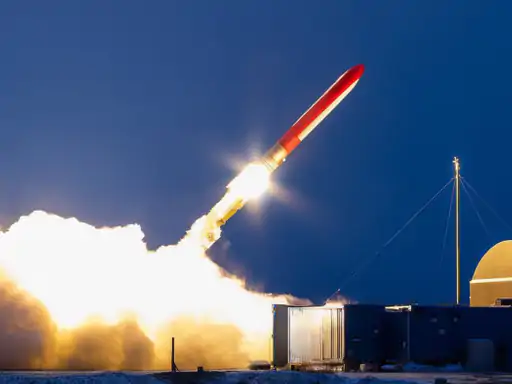Introduction
In a development that has reignited global security fears, Russia has successfully tested the world’s first nuclear-powered cruise missile, the Burevestnik (also known as SSC-X-9 Skyfall), officials confirmed on Monday.
The test marks a major milestone in Moscow’s pursuit of next-generation strategic weapons capable of flying for extended durations and evading traditional missile defense systems — but has also raised serious concerns about radioactive contamination and nuclear escalation.
The Test and Capabilities
According to Russia’s Ministry of Defence, the test was conducted from a remote launch site in the Arctic region, where the missile reportedly traveled thousands of kilometers before striking its designated target.
President Vladimir Putin hailed the test as a demonstration of Russia’s technological superiority and deterrence capabilities, claiming that the Burevestnik could remain airborne for “days” and strike “any target across continents.”
“This missile represents the pinnacle of Russian engineering — a weapon with practically unlimited range and unmatched stealth,” Putin said during a televised address.
What Makes It Different
Unlike conventional cruise missiles powered by jet fuel, the Burevestnik uses a miniature nuclear reactor to power its propulsion system, allowing it to travel at low altitudes for extended periods and approach targets from unpredictable directions.
This capability, military analysts say, makes it extremely difficult to detect or intercept, challenging decades of air defense strategy developed by NATO nations.
However, experts warn that such technology also carries unprecedented environmental and safety risks, as a malfunction could release radioactive material across vast areas.
Global Reaction
The United States and its allies have reacted cautiously but with concern.
The Pentagon said it was monitoring the situation closely, calling the test “a destabilizing step in global strategic balance.”
“If confirmed, this test represents a deeply troubling development. A nuclear-powered cruise missile poses inherent risks to both international security and environmental safety,” a U.S. Defense Department spokesperson said.
The European Union and Japan have urged Moscow to adhere to global arms control norms and allow independent verification of the test’s safety and environmental impact.
Past Accidents and Controversy
Russia’s earlier attempts to test the Burevestnik had met with setbacks.
In 2019, an explosion during a previous test near Nyonoksa killed several scientists and caused a brief radiation spike in the surrounding region.
The new test suggests that Russia has overcome the technical hurdles that once hampered its nuclear propulsion program.
Still, environmental groups and nuclear watchdogs, including Greenpeace Russia, have condemned the project as “recklessly dangerous,” warning that any crash or malfunction could spread radioactive contamination over hundreds of kilometers.
Strategic Implications
Analysts believe the move is part of Russia’s broader effort to counter U.S. missile defense systems and assert its military dominance amid tensions over Ukraine, NATO expansion, and sanctions.
“The Burevestnik gives Russia theoretical second-strike capability even if its land-based nuclear silos are destroyed,” said Dr. Pavel Felgenhauer, a Moscow-based defense expert.
“It’s a geopolitical message as much as a technological one.”
Arms Control at Risk
The test comes at a time when arms control agreements between Moscow and Washington have largely collapsed, with the New START treaty nearing expiration and no new accords in sight.
Experts fear that this could trigger a new era of nuclear competition, with major powers pursuing exotic weapons outside traditional treaties.
“The danger is not just the missile itself, but the erosion of global trust and transparency,” said Heather Williams, a nuclear policy researcher at King’s College London.
Conclusion
As Russia celebrates its breakthrough, the world watches with unease.
The successful test of a nuclear-powered missile — once considered science fiction — may redefine strategic deterrence but also poses questions about safety, accountability, and the future of arms control.
With nuclear technology now entering the propulsion systems of weapons, the line between deterrence and disaster has never been thinner.



